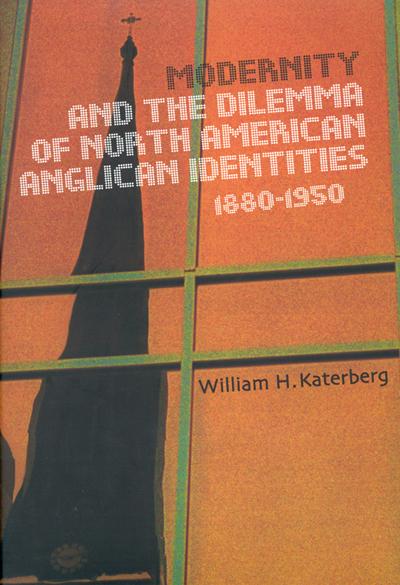Modernity and the Dilemma of North American Anglican Identities, 1880-1950 (2001)

In Modernity and the Dilemma of North American Anglican Identities, 1880-1950 William Katerberg shows how evangelical, high church, and liberal Anglicans used contradictory ways of appealing to the past to make sense of their place and purpose in a North American culture of competing identity choices. Scholars and other cultural commentators have often debated the extent and meaning of secularization in modern societies. Katerberg takes a different approach by emphasizing that people's religious commitments have become one of many competing identity choices in consumer cultures.
He describes the life and work of five leaders in the Anglican Church in Canada and the Episcopal Church in the United States who came of age in the late nineteenth century and served their religious communities until the mid-twentieth century. As clergy and educators they hoped to root the faith of modern Anglicans/Episcopalians in past traditions to provide a compelling spiritual purpose and identity for the present and the future. Their attempts to articulate a historical basis for Anglican unity and Christian ecumenism often had contradictory and even sectarian results.
Modernity and the Dilemma of North American Anglican Identities, 1880-1950 offers historians and scholars of religion and culture in North America a comparative perspective and a new way to understand how a previous generation looked to the past to address the dilemmas of an uncertain present and future.






